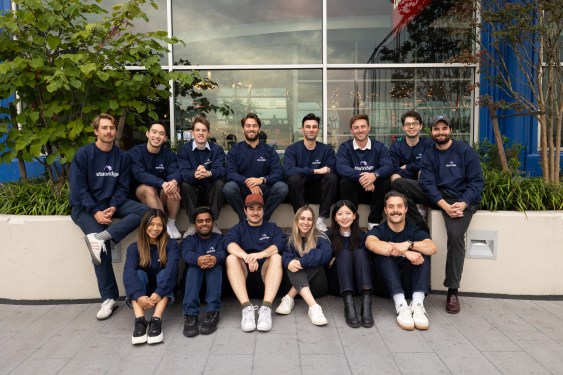Justin Wenig recalls his time at Y Combinator in 2019. He was then working on his first startup, Coursedog, which aimed to provide modern tools to higher education institutions and state departments. He quickly discovered that his peers disliked working with the public sector due to the excessive bureaucracy. Even simple tasks, like finding out what a school district had purchased the previous year, involved a great deal of paperwork.
Out of hundreds of startups, only a small group was focused on modernizing government and education systems. Wenig explained to TechCrunch that investors viewed the public sector as too slow, bureaucratic, and difficult to scale. He acknowledged that their concerns were valid, as selling to the public sector was indeed a challenging process.
Wenig sold Coursedog in 2021 for a nine-figure sum to JMI Equity and remains on its board. In 2024, he launched Starbridge, a platform designed to help sales teams track opportunities within the public sector. The platform enables teams to take action by submitting proposals or drafting bids for grants and budgets. Recently, Starbridge announced a forty-two million dollar Series A funding round led by David Sacks’ firm, Craft Ventures.
According to Wenig, the biggest challenge in the public sector is that data is fragmented and difficult to access. He stated that critical purchasing information is scattered across PDFs, agency websites, meeting minutes, and outdated directories. Vendors often spend countless hours trying to piece together who to contact and gather other necessary insights.
Starbridge consolidates this public web data into a single platform. Sales teams using the service can see a ranked scoring system, provided by Starbridge, which identifies which public sector accounts are most likely to purchase new technology. The platform also provides updates on changes in leadership or new initiatives.
Wenig said this allows customers to have a clear, data-backed view of where to focus their efforts and when to act, instead of chasing noise. He described his fundraising experience as fun and mentioned that the connection with Craft Ventures came through a friend. Other participants in the Series A round include Owl Ventures, CommonWeal Ventures, and Autotech Ventures. To date, the company has raised fifty-two million dollars, following an earlier ten million dollar seed round.
The startup’s next plan is to launch the Starbridge integrated experience. This will allow users to access the technology without constantly visiting the Starbridge platform. Every competitor analysis will go directly to a customer’s CRM, questions about an account can be answered via a Slack bot, and job changes will load directly into a sequencer.
Other companies in this market include GovWin and GovSpend. Starbridge claims its differentiation comes from building AI workflows on top of its datasets to make the platform easier for sales teams to use.
Wenig remembers that when he was fundraising for Coursedog, no venture capitalists were interested in talking to them. However, he believes the tides are shifting in the current AI era. He commented that while maybe nobody wants to run for office anymore, they do want to build. Seeing a new wave of mission-driven founders tackling real, systemic challenges makes him incredibly hopeful for the future.

